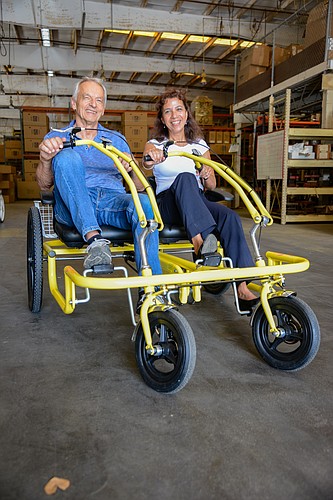- April 4, 2025
-
-
Loading

A key question facing the 2020 economy: Will the past few years of robust growth — from apartments and population to housing starts and company revenues — be trumped by a looming presidential election?
It’s on the minds of many business owners and entrepreneurs going into 2020. Yet for most, it’s not a DEFCON 2-type worry. It’s more like an electronic billboard on Interstate 75 that warns of upcoming congestion, and to be prepared.
Steve Bierwirth, the president of Bob Boast Volkswagen in Bradenton, sums it up well. “Obviously, we always concern ourselves with the election year,” Bierwirth says, adding that 2019 has been strong for auto sales, and he expects that to continue in 2020. The election could play out in several ways, he adds. Marketing and advertising, for example, cost more, he says, because he competes with a slew of political ads from all sides. Also, sometimes sales suffer when people have economic uncertainty.
A few other area business leaders — the Business Observer spoke to 15, from a hotel operator to a manufacturer to a BBQ entrepreneur — cite the 2020 election as a reason for caution. And while that’s palpable, two other themes rose to the top: One, a majority of business leaders are optimistic that 2020 will be a strong year; and two, most executives say the tight labor market — not the election — is the real in-your-face worry.
Bill Lederer, the chairman and CEO of iSocrates, a St. Petersburg-based tech and media marketing firm, says hiring and retaining talented people is his biggest obstacle to growth. The company moved to St. Petersburg from the Northeast to escape an anti-business, high-tax climate. And although that has worked out — all the way to the projecting $4 million in sales this year, more than double $1.62 million in 2018 — hiring hasn’t kept pace.
Lederer says that one of the main struggles has been getting people who accept an offer to actually start working. Several hires, he laments, simply haven’t shown up for their first day. “We thought it might just be the bad habits of a few people, but it’s a pattern of behavior,” he says.
Lederer’s goal for 2020? Become a more competitive “employer from the standpoint of what we offer and represent to the people who work in our business.”
One more trend in how businesses address the 2020 economy stems not from labor or elections — but in creative disruption. Ground zero for that is the co-working space, which has caused her industry to “rethink everything,” says Paula Clair Smith, a managing director of commercial services at Colliers International in Tampa.
Co-working space has shifted the leverage in leases to the tenant, not the landlord, Smith says, much like technology has disrupted auto sales, banking and hospitality, among other sectors. The answer, regardless of who is elected president or the state of the economy, is to do everything a step better than competitors — both new and old.
“Some landlords are still trying to ‘win’ the negotiation, when really,” Smith says, “they need to use common sense and just say, ‘Let’s fill up my center.’”
Click the links below to see professionals' views on the economic forecast for various industries.